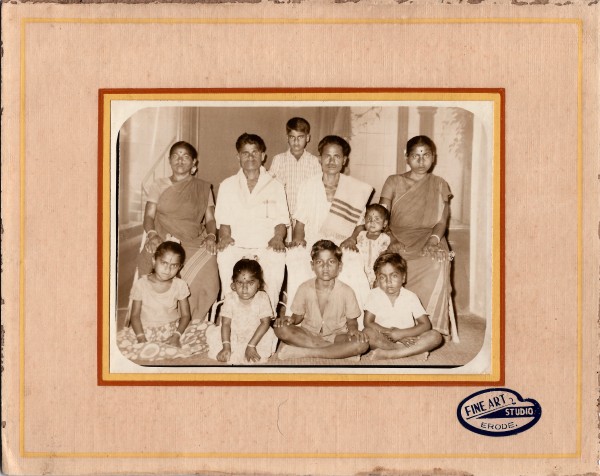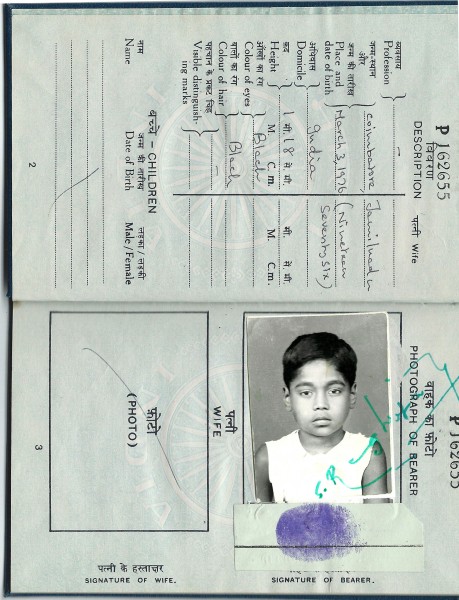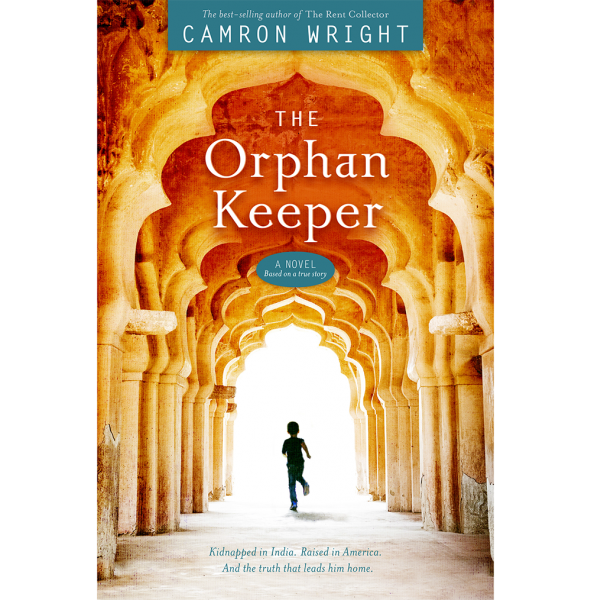Taj Rowland: From Tragedy to Triumph
As a seven-year-old boy, Chellamuthu was living in a village in India with his parents and siblings. They were poor, and many of Chellamuthu’s meals came from garbage cans. His bed was a mat on a dirt floor. But Chellamuthu had never known anything other than the life he was living. The dark skin of the people of India, the pungent smell of curry, and the sound of machetes chopping at coconuts were his reality and his comfort.
One day it all drastically changed when Chellamuthu was kidnapped and taken to an orphanage in a distant town. The dark underbelly of international adoption had reared its ugly head, and money spoke louder than ethics. That frightened little boy suddenly found himself lost and alone.

The orphanage was not a bad place. He was well fed. He had clean clothes and was able to wash himself regularly, but it was not home. He missed his mother and father and longed to find his way back to the places he knew. But it was not to be. A year later, everything changed again. Chellamuthu was adopted by a couple in the United States. Truth be told, the adoptive couple had been anticipating a child around the age of three years, and when Chellamuthu and his documents showed up at the embassy, the embassy workers quickly realized that this little boy was much older than three. A midnight phone call was made to the waiting couple, and the question was posed, did they still want him, even though he was closer to eight? After a quick, fervent prayer, the couple said yes. They felt he was their son, and Chellamuthu was put on an airplane and sent across the world to a foreign land.
He arrived in the United States, specifically Utah, in December. It was winter, and the boy who only knew the dust and heat of India found himself wearing shorts and flip flops in the snow. Snow. That alone must have been so mysterious. He was greeted by his new family and taken to his new home. His name was changed from Chellamuthu to Taj, and with that, everything that had tied him to his far away home was severed.
Taj had never seen a white face before, and suddenly he was surrounded by them. The community in which his family lived was predominantly white and Taj was one of the only people of color in his entire town. His home consisted of many rooms, soft beds, cupboards full of food, heat, carpet, and running water. Though these things sound luxurious, they were overwhelming to a small boy who had never experienced anything like them. The language, religion, sights, sounds, smells, and overall culture were foreign and frightening. His life had been turned completely upside down. Taj described himself as a “fish who didn’t know how to swim.” He went in to survival mode and mentally shut down. He put all his memories of his past life behind him, and began living this new, strange life he had been handed.
Due to the language barrier, Taj was unable to communicate enough with his new family to tell them that he already had a family back home in India. The Rowlands had felt drawn to adoption and had no reason to believe that their new son was not an orphan in need of a family. Two years after arriving in the United States, Taj’s grasp of the English language had improved enough that one day he was able to tell his mother what had happened to him. She was shocked and anguished, and they began searching for Taj’s family back in India. But every road hit a dead end. By then, the corrupt orphanage had been shut down, and since his documents had been falsified, there wasn’t enough information to know much about Taj’s past.
Taj grew into a handsome young man. He was intelligent, well-spoken, and popular among his peers. He was even elected as Student Body President of his graduating class. He knew he was different and worked hard to prove himself to everyone around him. Though he appeared confident, inside he was still a scared little boy trying to make sense of his life. After so many years of being Taj, parts of him still longed to be Chellamuthu.

As I sat in Taj Rowland’s living room, listening to him recount this tale of tragedy and grief, I couldn’t help but think about my own experiences with adoption. Adoption, no matter the circumstances, stems from tragedy and loss. Yes, as adoptive parents we feel as if the arrival of our children through adoption is joyful and miraculous, but looking at it from a distant lens, we can acknowledge that in order for us to adopt our children, they were removed from their biological roots. No matter how open and happy an adoption relationship may be, we can’t forget that a child was separated from their biology.
In the 1990’s it was still common for adoptions to be closed. Children adopted from the 90’s back may not have the advantages that come from the open adoptions of today’s world. They don’t know their biological parents, they don’t have their health history, they don’t even know the real reasons they were placed for adoption. All of these questions can weigh heavily on their minds as they reach adulthood, and many adult adoptees find themselves feeling angry about their adoption stories. They want their questions answered. Like Taj, they want to know where they have come from and who they once were.
Taj and I talked about this aspect of his story in relation to other adult adoptees facing similar quests of self discovery. Of course, Taj’s story may seem much more dramatic than other international adoption stories, and even more so when it comes to domestic adoption, but to each adoptee, his/her story is just as meaningful, poignant, and personally painful. In Taj’s situation, he had every reason to be angry and rebellious, but instead, he found himself desperate to fit in. He played the roll of the “happy, popular guy” well and never spoke of his story. No one at his high school had any clue that their student body president had been kidnapped as a child and sent to live across the world.
Looking at Taj’s life today, one would still never guess that it all began in a poor Indian village. He is a successful business owner, and is happily married to a lovely, supportive wife. Together they have two beautiful daughters. I asked Taj: When did his healing begin?
The answer to that question was: When he was able to reunite with his biological family.
It is a story of twists, turns, dead-ends, and success. But, finally, the lost little Chellamuthu who had been pushed into the far corner of Taj’s mind was brought out of hiding. Taj was able to combine who he once was with who he had become. The vastly different worlds of India and Utah came together as one long story, rather than two separate tales. That is when he began the process of healing. Telling his story has been cathartic and he shares it with the desire to help others through their own journey.
So what advice does Taj Rowland have for those who may be searching and suffering? He wants them to know that self discovery takes time, a lifetime in his case, so be patient with the process. Life is what you make it. No matter a person’s past, they can choose to be happy and to take paths that lead to success. Despite the tragedies that can bring a child into the world of adoption, he wants adoptees to remember that the family they were raised in wants them and loves them. That is a blessing that may become buried in the hurt and anger.
But his biggest message of all is this: There is always HOPE.
Taj Rowland’s full story can be found in the newly released book The Orphan Keeper by New York Times best-selling author Camron Wright. Visit www.theorphankeeper.com for more information.







